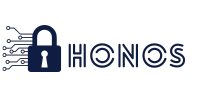Today marks a historic milestone in the artificial intelligence (AI) revolution: its regulation and governance era has begun. On May 21, 2024, the Council of Europe approved the Artificial Intelligence Act, a ground-breaking piece of legislation designed to harmonize AI rules across the European Union (EU). This landmark law follows a ‘risk-based’ approach, ensuring that the stricter the potential harm to society, the more stringent the regulations. As the first comprehensive AI regulation of its kind globally, the EU AI Act sets a new standard that could influence worldwide AI governance.
Aims and Scope of the EU AI Act
The AI Act aims to foster the development and use of safe and trustworthy AI systems across the EU’s single market, benefiting both private and public sectors. It is designed to ensure the protection of fundamental rights for EU citizens while simultaneously stimulating investment and innovation in AI technology. While the Act primarily applies within the EU, its reach extends globally, impacting businesses outside the EU that serve EU customers or whose AI systems are accessible in the EU.
One notable aspect of the AI Act is its exemptions. The legislation does not apply to AI systems used exclusively for military, defense, or research purposes, recognizing the unique requirements and potential benefits in these areas.
Who is Affected by the EU AI Act?
The AI Act applies directly to businesses operating within the 27 EU member states. However, it also affects non-EU businesses, including those in the UK and the USA, if they have customers in the EU or their AI systems are accessible within the EU. Additionally, the Act extends to businesses in Norway, Iceland, and Liechtenstein under the European Economic Area (EEA) arrangements. This broad scope ensures that any AI system impacting the EU market adheres to the same standards of safety, transparency, and accountability.
The definition of an “AI system” under the AI Act is comprehensive, covering machine-based systems designed to operate autonomously and exhibit adaptiveness post-deployment. This definition aligns with the Organisation for Economic Co-operation and Development (OECD) standards, although translations into various EU languages may broaden its interpretation, necessitating further guidance for clarity.
Implementation & Enforcement Timeline of the EU AI Act
The AI Act introduces a phased implementation timetable, with key milestones over the next three years:
- Late June/Early July 2024: The AI Act becomes law, 20 days after its publication in the Official Journal.
- Late 2024: Prohibitions on certain high-risk AI practices come into force.
- Summer 2025: Regulations for general-purpose AI systems begin.
- Summer 2026: High-risk AI systems face stringent requirements.
- Summer 2027: Full enforcement of product safety regulations for high-risk AI systems.
Risk-Based Classification
The AI Act categorizes AI systems based on their risk levels:
- High-risk AI systems: Subject to stringent requirements to access the EU market.
- Limited-risk AI systems: Face lighter transparency obligations.
- Prohibited AI practices: Bans AI systems deemed to pose unacceptable risks, such as those used for cognitive behavioral manipulation, social scoring, predictive policing based on profiling, and systems categorizing individuals using biometric data based on sensitive attributes like race or religion.
Governance and Enforcement under the EU AI Act
To ensure effective enforcement, the AI Act establishes several governing bodies:
- AI Office within the European Commission: Enforces common rules across the EU.
- Scientific Panel of Independent Experts: Supports enforcement activities.
- AI Board with Member States’ Representatives: Advises on the consistent application of the AI Act.
- Advisory Forum for Stakeholders: Provides technical expertise to the AI Board and the Commission.
Penalties for Non-Compliance with the EU AI Act
The AI Act imposes significant fines for non-compliance, calculated as a percentage of the offending company’s global annual turnover or a predetermined amount, whichever is higher. Small and medium-sized enterprises (SMEs) and start-ups are subject to proportional administrative fines, ensuring that penalties are fair and proportionate.
Welcome to the AI governance era under the EU AI Act
The adoption of the AI Act represents a significant achievement for the European Union, addressing the dual challenges and opportunities presented by AI technology. By emphasizing trust, transparency, and accountability, the EU sets a precedent for global AI regulation, ensuring that this transformative technology can develop safely and ethically while boosting innovation and investment within Europe. As the world watches, the AI Act may very well become the blueprint for future AI governance worldwide.










